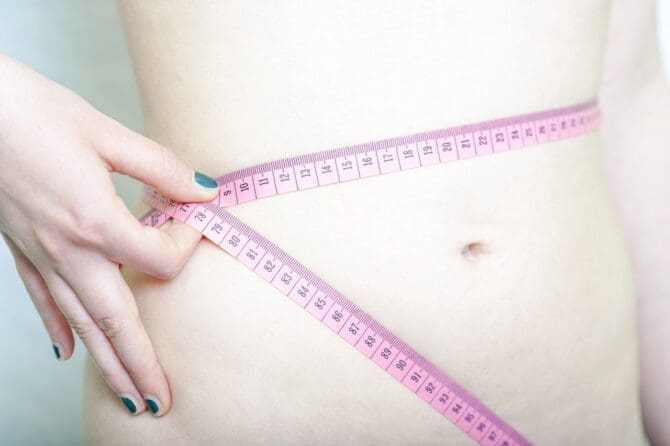Tried-and-true Western fertility approaches—like tracking ovulation, timed intercourse, and medical interventions—are valuable, but millions around the world have turned to Traditional Chinese Medicine (TCM) for an extra edge on their fertility journey. Rooted in over 2,000 years of practice, TCM views fertility as a harmonious interplay of Qi (vital energy), Blood, organ function, and emotional balance. Acupuncture, herbal formulas, and lifestyle adjustments work synergistically to address underlying imbalances, improve egg and sperm quality, regulate hormones, and create the optimal internal environment for conception.
In this comprehensive guide, we’ll explore:
Fundamental TCM concepts in fertility
How acupuncture supports reproductive health
Key Chinese herbs and formulas for conception
Lifestyle and dietary recommendations
Integrating TCM with Western treatments
What to expect in your first TCM fertility consultation
Tips for choosing a qualified practitioner
Measuring progress and timing conception efforts
By blending ancient wisdom with modern understanding, you’ll gain powerful tools to enhance your natural fertility and support any assisted reproductive technologies (ART) you pursue.
Fundamental TCM Concepts in Fertility
TCM doesn’t isolate organs; it looks at patterns of imbalance. Three pillars underpin reproductive health:
Kidney Essence (Jing): The foundation of growth, development, and reproductive capacity. Sourced from parents at conception (pre-natal Jing) and augmented through diet and lifestyle (post-natal Jing).
Liver Qi & Blood Flow: Free-flowing Liver Qi ensures smooth menstrual cycles and emotional well-being. Stagnation can lead to irregular cycles, painful periods, or mood swings.
Spleen Qi & Digestive Health: The Spleen transforms food into Qi and Blood. Weak Spleen function can cause fatigue, poor nutrient absorption, and insufficient Blood for nourishing the uterus.
A TCM diagnosis identifies your specific pattern—such as Kidney Yang Deficiency, Blood Stagnation, or Damp-Heat—and guides a personalized treatment plan.
How Acupuncture Supports Reproductive Health
A. Balancing Hormones & Regulating Cycles
Pituitary-Ovarian Axis: Acupuncture modulates neurotransmitters like β-endorphin, which in turn stabilize luteinizing hormone (LH) and follicle-stimulating hormone (FSH) levels, promoting regular ovulation.
Stress Reduction: By shifting the autonomic nervous system toward parasympathetic dominance, acupuncture lowers cortisol levels that can inhibit gonadotropin-releasing hormone (GnRH).
B. Enhancing Blood Flow to the Uterus and Ovaries
Microcirculation: Needling key points (e.g., SP6, ST29, CV4) has been shown in Doppler studies to increase blood perfusion, improving endometrial thickness and follicular development.
C. Supporting Sperm Quality
Oxidative Stress Reduction: Regular sessions can boost antioxidant defenses in men, improving sperm motility, concentration, and morphology.
D. Complementing IVF and IUI
Protocol Timing: Treatments scheduled before and after embryo transfer have been associated with higher implantation and pregnancy rates, likely due to reduced uterine contractions and enhanced endometrial receptivity.
Key Chinese Herbs and Formulas for Conception
Individual herbs can be potent; formulas combine synergistic actions:
Primary Indications |
——————————————————–|
Blood and Qi deficiency—fatigue, pale complexion, scanty periods |
Kidney Yang deficiency—cold extremities, low back pain, infertility |
Blood stasis—painful periods, fibroids, recurrent miscarriage |
Liver Qi stagnation—mood swings, PMS, irregular cycles |
Kidney Yin deficiency—night sweats, hot flashes, low ovarian reserve |
Administration & Monitoring: Herbs are prescribed in precise combinations, often brewed into decoctions or provided as pills. A qualified TCM practitioner adjusts formulas based on your ongoing response and any changes in symptoms.
Lifestyle and Dietary Recommendations
TCM emphasizes holistic living to reinforce treatment effects:
A. Diet for Nourishing Qi, Blood, and Jing
Warm, Cooked Foods: Congee (rice porridge), stews, and soups are gentle on the Spleen and easier to digest.
Black Sesame Seeds & Walnuts: Traditional “kidney tonics” rich in healthy fats and minerals.
Leafy Greens & Beets: Support Blood-building; add ginger for warmth and circulation.
Avoid Cold, Raw Foods: They weaken the Spleen’s digestive function, leading to Dampness and Qi deficiency.
B. Gentle Movement
Qi Gong & Tai Chi: Cultivate and circulate Qi, reduce stress, and support Kidney function.
Prenatal Yoga: Focus on pelvic opening, breath work, and relaxation—complement acupuncture perfectly.
C. Sleep & Stress Management
Consistent Bedtimes: Align with natural circadian rhythms; aim for lights out by 10 pm to support Kidney Yin replenishment.
Mindful Practices: Meditation, journaling, or guided imagery to clear Liver Qi stagnation and calm the heart-mind.
Integrating TCM with Western Treatments
TCM can work alongside:
Clomid or Letrozole Cycles: Acupuncture can reduce side effects like hot flashes and bloating, while herbs support follicle health.
IUI & IVF Protocols: Synchronize sessions around controlled ovarian hyperstimulation and transfer days for maximum benefit.
Surgical Interventions: Post-surgical acupuncture and herbs can speed recovery from procedures like laparoscopy for endometriosis.
Communication Is Key: Ensure your TCM practitioner is aware of all medications, supplements, and treatment dates so they can tailor timing and herbal choices accordingly.
What to Expect in Your First TCM Fertility Consultation
Comprehensive Intake: Medical history, menstrual and sexual history, lifestyle, emotional state, tongue and pulse diagnosis.
Pattern Identification: Your practitioner will explain your unique TCM pattern (e.g., “Kidney Jing deficiency with mild Liver Qi stagnation”).
Treatment Plan: Outline of acupuncture frequency (typically 1–2 sessions/week), herbal formulas, diet, and lifestyle adjustments.
Progress Monitoring: Regular symptom check-ins, tongue and pulse reassessments, and formulary tweaks every 4–6 weeks.
Tips for Choosing a Qualified Practitioner
Licensure & Certification: Look for a practitioner with nationally recognized credentials (e.g., NCCAOM in the U.S., ACC in Australia).
Fertility Specialization: Ask about specific training in reproductive acupuncture and TCM gynecology.
Collaborative Approach: Ensure they’re open to working with your medical team and adjusting protocols around your ART schedule.
Patient Reviews & Testimonials: Read firsthand accounts of success stories—though individual responses vary, positive experiences can be encouraging.
Measuring Progress and Timing Conception Efforts
Tracking Outcomes
Menstrual Regularity: Improved cycle length and flow consistency often emerge within 3 months.
Ovulation Markers: Stronger, more regular LH surges, cervical mucus quality, and basal body temperature shifts.
Emotional Wellbeing: Reduced anxiety, improved mood—signs of smoother Liver Qi.
Timing Intercourse & Procedures
Natural Cycles: Intensify acupuncture and herbs in the follicular phase leading up to ovulation; schedule intercourse on peak days.
IUI/IVF: Follow a pre-transfer protocol (often 2–3 sessions pre-transfer and 1 post-transfer) to maximize uterine receptivity.
Final Thoughts
Traditional Chinese Medicine offers a holistic, personalized pathway to fertility that honors the interconnectedness of mind, body, and spirit. By combining acupuncture, herbal medicine, and lifestyle modifications, you address root causes—rather than merely treating symptoms—and create a fertile foundation that supports both natural conception and advanced reproductive technologies. While every journey is unique, many couples find that integrating TCM not only improves their fertility markers but also enriches their overall wellbeing, providing hope, balance, and empowerment along the way.
Frequently Asked Questions
How soon will I see results from fertility acupuncture?
Many women report cycle regulation and reduced stress within 2–3 months. Optimal Jing and Blood building often take 3–6 months of consistent treatments.
Are there any side effects to TCM fertility herbs?
When prescribed by a qualified practitioner, herbs are generally well tolerated. Mild detox reactions (e.g., headache, digestive changes) can occur as the body adjusts, but your practitioner will modify formulas to minimize discomfort.
Can men benefit from fertility acupuncture and herbs?
Absolutely. TCM protocols exist for improving sperm count, motility, and morphology—focusing on Kidney Yang strength, Liver Qi flow, and Blood nourishment.
How do I balance Western medications with TCM treatments?
Always disclose prescription cycles (Clomid, Letrozole) and procedure dates. Your TCM practitioner will time acupuncture sessions and adjust herbs to complement, not interfere with, your medical protocol.
Is acupuncture painful?
Most patients feel minimal discomfort—a quick pinch or tingle—followed by relaxation. Needles are extremely thin, and sessions often leave you feeling calm and energized.
How often should I have acupuncture sessions?
For fertility, 1–2 times per week is typical. Frequency may be higher during IVF cycles or lower if you respond quickly—your practitioner will tailor the schedule.
What should I wear to an acupuncture appointment?
Loose, comfortable clothing (yoga pants, T-shirt) allows access to arms, legs, abdomen, and back. You’ll remain fully clothed during most points of treatment.
Can I continue acupuncture once I’m pregnant?
Yes—many women choose to continue until their second trimester to support healthy blood flow, reduce miscarriage risk, and maintain emotional balance. Always inform your practitioner when you conceive.
—
Embrace the time-tested wisdom of Traditional Chinese Medicine to nurture your fertility and well-being. By aligning ancient principles with modern goals, you open a path to conception that’s as empowering as it is effective—bringing you closer to the family you envision. Good luck on your journey!










